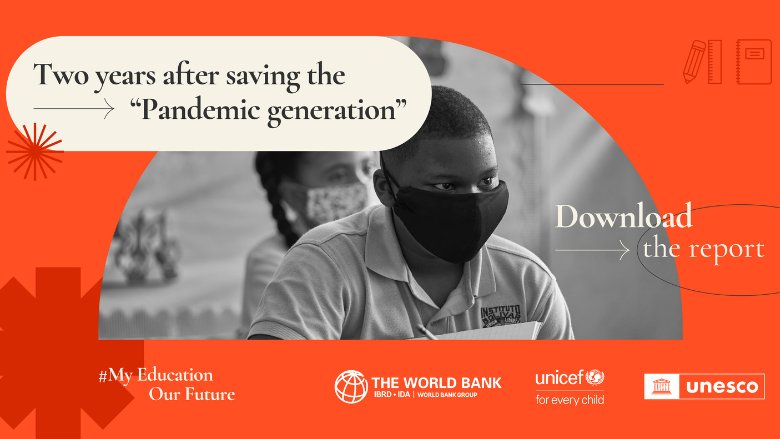Colombia will lead the regional event: A Commitment to Action
Let us all work for the education of children and teens in the region. Colombia hosted an unprecedented meeting of key leaders in education from several Latin American and Caribbean countries on March 22-23.
Despite significant efforts undertaken by governments, teachers and parents during the schools closures that took place during the pandemic, children have lost—on average—1.5 years of learning. As a result of two years of school closures in the region, learning results could have regressed more than ten years.
If action is not taken soon, via the necessary education-sector reforms, four out of every five sixth-grade students in Latin America and the Caribbean will not be able to read a simple text.
The youngest and poorest have been the most affected, preliminary evidence from several countries show that losses are greater at the primary than the secondary level; among students from lower socio-economic backgrounds, learning losses are such that many of them are at risk of abandoning school altogether.
Learning Recovery is Key
Recovery starts with a commitment. Colombia joined a global commitment to guarantee foundational skills to its children, and it is now leading and summoning other countries to join the cause of education. This effort builds on a regional declaration to protect and recover learning losses that was endorsed last year by the presidents of Argentina, Chile, Ecuador and Honduras.
This meeting is a call for all governments in Latin America and the Caribbean to join Colombia with a commitment to the education of all youngsters and to invest in them, thus guaranteeing a better future for the entire region. It is also an opportunity to analyze the current problems of the sector, draw up a roadmap and share experiences that guarantee the recovery of basic learning for children and adolescents in the region.
A live stream of this event will be shared via our social media.
Let us get #ACommitmentToAction for education.

